Most People Don’t Care About Daylight Saving Time
A majority of Americans say their lives are not "disrupted" by the time change. They're wrong.
The biannual clock change that affected most Americans overnight has produced the customary flurry of media reaction pieces. Harry Enten’s contribution at CNN, “Complaining about the change to Daylight Saving Time? You’re in the minority.” is among the odder.
You’re going to hear a lot of complaints about the switch to Daylight Saving Time, which begins on Sunday. (I hate it too because I enjoy sleep.) It’s become so bad that, as my colleague Z. Byron Wolf has written, the state of Florida wants to eliminate the time switch all together.
There’s just one problem for us whiners: there’s no sign that the majority of people share our opinion.
The majority of people, 55%, actually aren’t disrupted at all by DST. That was the finding of a Princeton Survey Research Associates International survey in 2017. Now, a healthy minority, 41%, said that they were at least a little disrupted by DST, but among all Americans only 13% said it was a major disruption.
Indeed, the limited high quality public polling data finds that there’s not some great crusade for Americans to switch away from having DST and standard time. Three years ago, a CBS News survey found that a majority of Americans 54% were either okay with the current situation or had no opinion on the subject. Even among those who wanted a change, they were split evenly between those who wanted DST all year or not at all.
You might remember that DST was extended in 2007. Americans seem to be okay with that switch. In 2010, CBS News found that the majority, 54%, thought that the extension of DST — originally enacted in order to reduce electricity usage by extending daylight hours — that occurred back in 2007 was a good idea. Yet at the same time, a separate CBS News poll that year discovered that 58% of Americans didn’t want to extend DST year-round. This was a viewpoint held across ages, regions and party affiliations.
In fact, people have never been against DST. Gallup first asked about DST back in 1937. Back then, 51% were in favor of it to only 37% who were opposed. In every high quality survey I could find since then, more people than not were in favor of springing ahead when asked directly if they favored or opposed DST.
While it’s useful to know whether there’s a mass dissatisfaction with a public policy choice like DST, the question of “disruption” is not one best answered by polling.
I personally find the change mildly disruptive, in that I’m an early riser and the “spring forward” means that it was still pitch black when I woke up at 6:15 Eastern. And it’s still pretty dark as I type this at 6:58. But, since I’ve an early riser and don’t have anywhere I need to be any time soon—and because the clock by my bedside is one of the few in the house that doesn’t automatically adjust—my only “disruption” was realizing that it was an hour later than I thought it was and that I’d “slept in.” On Monday, my kids will be a little harder to get out of bed in the mornings and, in a few weeks, it’ll be harder to get them to sleep than it would otherwise be when it’s still light at 8:30 pm.
Survey data is useful for aggregating those sorts of impressions.
But, as another CNN report “updated” for today notes, the real disruption of DST is to people’s circadian rhythms, which have real-world impacts that clock-driven folks are unlikely to notice.
A 2016 study found that the overall rate for stroke was 8% higher in the two days after daylight saving time. Cancer victims were 25% more likely to have a stroke during that time, and people older than 65 were 20% more likely to have a stroke.
The researchers, based in Finland, compared the rate of stroke in more than 3,000 people hospitalized the week after a daylight saving time shift to the rate of stroke in more than 11,000 people hospitalized two weeks before or after the week of transition.
“Stroke risk is highest in the morning hours,” Dr. Jori Ruuskanen, study author from the University of Turku, said in an email. “Previous studies have also shown that the disruption of the circadian clock due to other reasons (e.g. due to rotating shift work) and sleep fragmentation are associated with an increased risk of stroke. However, we did not know whether stroke risk is affected by DST transitions. What is common in these situations is the disturbed sleep cycle, while the immediate mechanisms for the increased risk are unknown at the moment.
Moreover,
The Monday and Tuesday after daylight saving time in the spring have also been associated with a 10% increase in heart attacks, according to a 2012 study at the University of Alabama Birmingham.
“When we change the time by one hour, it throws a monkey wrench into our circadian process,” said Christopher Barnes, an associate professor of management at the University of Washington who researches the impact of sleep deprivation, especially in the workplace. “The following Monday, we’ve discovered that people have about 40 minutes less sleep. Because we’re already short on sleep to begin with, the effects of even 40 minutes are noticeable.”
For a paper on public health policy recommendations, Barnes cited studies that show how the annual removal of an hour has been linked to more workplace injuries, auto accidents and even hinders moral decision making. In the paper, published in the Perspective on Psychological Science, Barnes and his co-author, Christopher Drake of the Sleep Disorders and Research Center at Henry Ford Hospital, suggested that daylight saving time be eliminated. They argued that based on the results of multiple studies showing its negative effects on cognitive ability, health and the workplace, removing this occurrence from our calendar would prioritize sleep health.
Even though there aren’t as many negative associations with the fall transition, when we gain an hour, Barnes said their research has shown people don’t typically use the extra hour for sleep. “Human beings aren’t built for 25-hour days,” he said. “It throws people off because we’re working against our natural process.”
Additionally, there are economic impacts:
A new study out from JPMorgan Chase Institute found that the switch back to standard time is associated with a drop in spending between 2.2% and 4.9%, depending on where you live.
Daylight saving time starts in the spring when clocks are pushed forward an hour and ends in the fall when clock are set back to standard time. The policy affects over 300 million Americans. One of the supposed advantages of the policy is that the extra hour of sunlight encourages Americans to stay out and spend money, giving a boost to small businesses and the economy in general.
Study after study finds real-world impacts of the time change. For example, judges dole out harsher sentences in the days after we switch, owing to greater sleep deprivation. That sort of information is really much more useful than the impressions of those willing to answer phone surveys in assessing the “impact” of the time change.
UPDATE: Too much information to usefully excerpt but two WaPo pieces shed additional light on the subject. Justin Grieser considers how our lives would be impacted were we to either get rid of Daylight Saving Time completely or, conversely, do away with Standard Time and just stay on DST year-round. The impact of the latter would be much smaller, since “Standard” Time is now only four months of the year. Ana Swanson shows the degree to which the debate misses incremental changes—the fact that the effects are much different depending on one’s latitude and longitude.
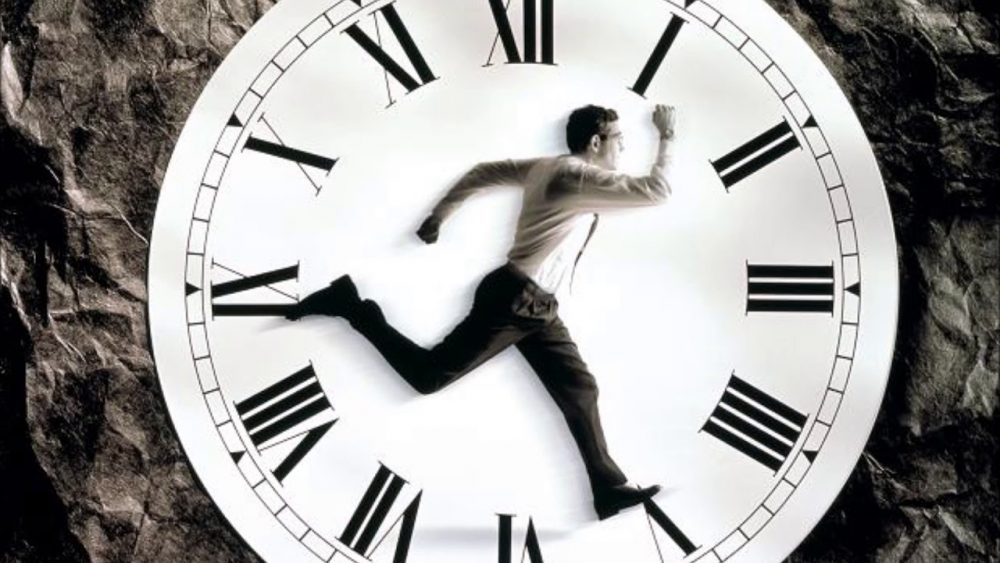

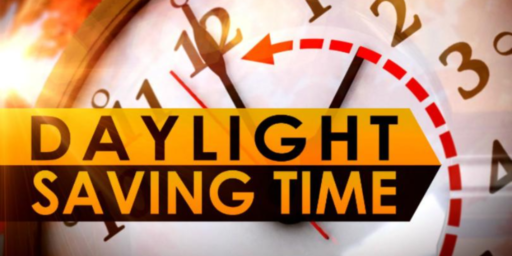
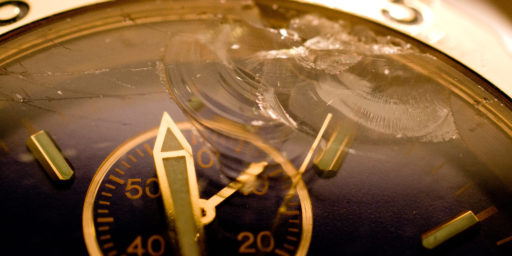
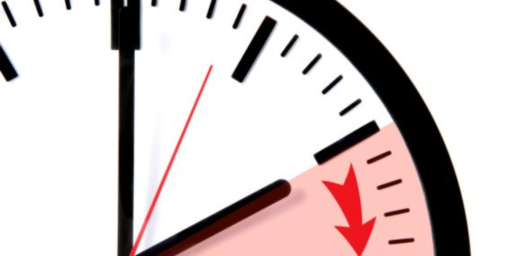

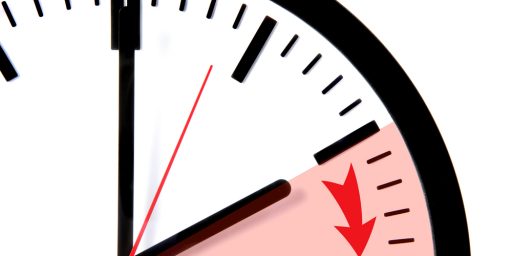
The FL legislature has just passed a bill making DST a 12-month ‘adjustment’ down here in crazy-land. I imagine that the Chamber on all the little gulf islands can’t get enough long-lingering-tropical-sunset pictures in the time allotted on standard time.
@JohnMcC: My preference would be to get all jurisdictions on DST and leave it there rather than go through the constant adjustments. But there’s resistance to having kids go to school in the dark.
This seems a good time to share Kathy’s Principle of Choices: When choosing between two or more alternatives, you will find there are downsides to all of them, and that there is no one perfect choice.
Here’s one more choice: Since most clocks nowadays are in computers, cell phones, and other connected devices, couldn’t we phase in the switch to and from DST gradually over a couple of weeks or even longer? This would move time across a longer period for minutes or even seconds per day (depending on the length of the period), until eventually an hour is added or subtracted.
The downsides: Many people don’t let their clocks adjust via network. Many clocks are not on connected devices. Early implementation would be buggy (all software is) and prone to error. And more.
But perhaps the benefit of a gradual change would be worth the downsides.
@James Joyner: It likely varies depending on location, but here in Fairfax many kids are getting on buses in the dark for much of the schoolyear already.
I’m with you, I think we should do the March time shift and just leave it there.
@James Joyner: There is also resistance to working in the dark from carpenters, iron workers, pipe fitters, electricians, glaziers, laborers….
@OzarkHillbilly:
Sure. But 1) they likely still prefer to have that extra hour of daylight after work, 2) in the winter months, they’d be working in the dark at the end of the shift, and 3) it wouldn’t be all that hard to simply change their work schedules.
@James Joyner: Dropping back by, thanks for the reply. Looking at the threat to this point… scratches bald head… remembers that there actually was a year right after I graduated from UT, first kid born that winter… 1973-74 was a year we didn’t leave DST. Wikipedia that and sure enough! Carbon-based memory still functions within parameters!
Another memory of that year: A young lady walking in the dark to a bus stop wearing a long black coat chose to walk in the traffic lanes melted by tires. I missed her with the truck but broke her femor with the west coast mirror.
We’re having a discussion of perceived risk in another thread. We’ve mentioned kids going to school in the dark in this thread. And there’s this, too.
Twice a year, networking professionals have to go through all the devices on their networks to make sure all the times have changed properly. (It’s usually automated because nobody’s got time for that.)
It’s time we stop changing the time.
I’m for permanent Daylight Savings. It’s one less hour we would have to suffer tRump.
@Kathy: No no no no no! Because what your suggestion does is totally eff-up the time relations between the US and the rest of the world.
We have enough troubles already keeping track of the time differences between the US and other countries that go on DST themselves.
@James Pearce:
Dead on. Exactly.
This is an anachronism, time to let it go.
@grumpy realist: I said there were more downsides.
I’ve been back from Korea (no DST) for 3 years and still don’t remember when the shift happens here. Of course, the fact that I stream TV now and miss the announcements reminding me to turn my clock forward doesn’t help. I’m retired and more owlish than dovish so the change doesn’t concern me much, but it was nice not to have to worry about resetting clocks while I was in Korea.
It takes me a good month to adjust, but I like the longer daylight now. I would vote to keep it like this and not change.
I’ve been beating the drum against DST forever, and will continue to do so. I have teleconferences with European colleagues. Somebody misses them every time the clocks change. And it happens four times a year, the two times we change plus the two times they change. Thanks, Bush.
And I couldn’t give a **** about the argument that most of our clocks are on computers/phones/etc. Some people still like a nice wall clock. And by ‘some’, I mean everybody I know.
But then, I’m in an advantaged position. With my flexible job, I can usually just go into work when I’m ready, so I can phase it in. It’s the rigidity of school and business hours that is causing the conflict with the sun. For example, if they really wanted sunlight for kids to go to school, they could just start the school day later.
Well, the only real solution is to abandon zone time and shift to local apparent time.
And with all those terrible consequences, we definitely should prohibit east-west travel by anything faster than a horse drawn wagon.
And I can tell you, having sunrise at 11 am (by the clock) is very disconcerting. It made the 8-12 fell like the 4-8, but only for a couple days before we ran back east. Me, I vote for staying on DST as I live on the western edge of the Eastern time zone. Those on the east side and closer to a pole, say Boston, probably feel differently.
So very much is now explained.
@Franklin: Scientists and kids have been pushing for later start times for schools for years. The schools just don’t want to pay the cost of hiring more bus drivers.
@Timothy Watson: A later start time for many schools would mean some students would be eating lunch at 3:00. And if they ride the school buses many would get home after sunset. Many local recreational sports leagues would have to move their entire night schedules and some games around here would not start until close to 10:00! Parents would not go for that.